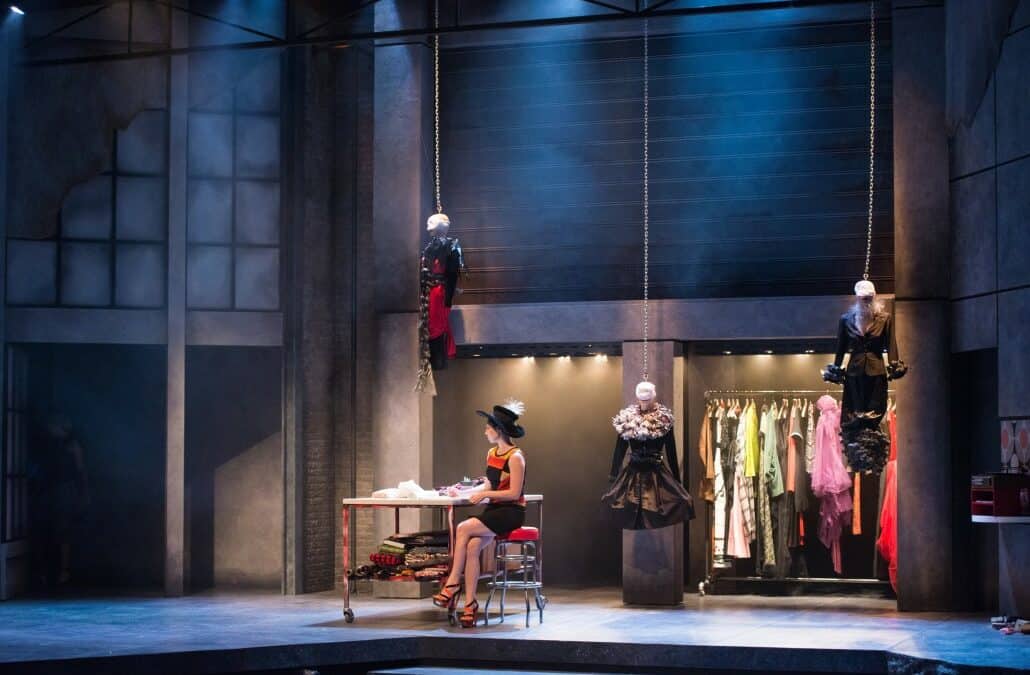
by Jack Gohn | Jul 22, 2015 | The Close Up, Theater Reviews and Commentary
The overall effect is a bit like a fireworks display, with loud fun things happening more or less continually. It is not profound, a quality seldom looked for in shaggy dog stories, but the tale at its heart, a whimsical family drama, is sturdy enough, and perhaps the place where a more genuine feminism is lurking than may be found in the odd evocation of fashion.
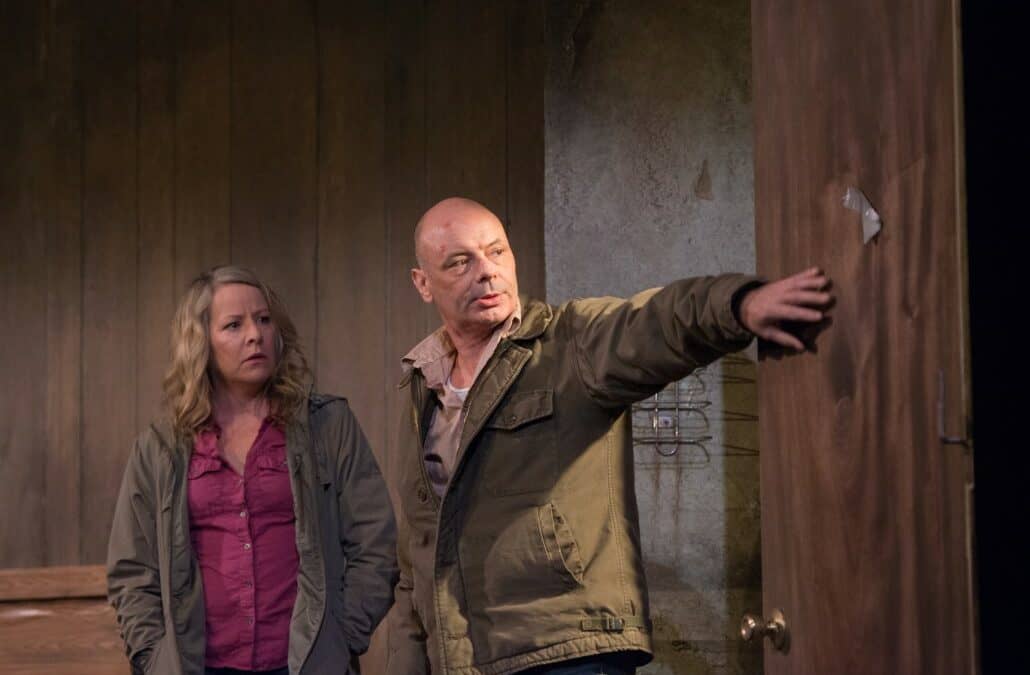
by Jack Gohn | Jul 22, 2015 | The Close Up, Theater Reviews and Commentary
The action, from the shadowy world of religious cults and deprogrammers, takes place in the ruins of a derelict motel, where distraught mother Kate (Tasha Lawrence) has been brought by Stine (Lee Sellars), a supposed specialist in reuniting abandoned parents with cult-brainwashed youngsters. Stine intends (so he says) to abduct Kate’s daughter from the cult’s commune and work with her here. The shockingly scuzzy room tells us immediately is that something is terribly wrong with Kate and Stine’s scheme. So does a financial fact revealed in the early going. In the course of the play, we find out what that something and several other somethings are.
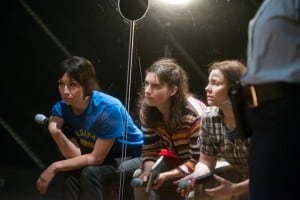
by Jack Gohn | Jul 22, 2015 | The Close Up, Theater Reviews and Commentary
The success of PUSSY RIOT rests upon what author Barbara Hammond gets right. This includes a recreation of an actual Pussy Riot provocation/performance; excerpts from the Russian government’s show trial which rely largely on the actual words of the defendants, lawyers, and judge; and the language and attitudes of the authorities, especially the police and the judiciary, which are notorious. And overarching these, the show nails the crisis of authority and legitimacy for the Russian state and the Russian Orthodox Church a crisis the Pussy Riot protestors helped exacerbate for a while to an acuteness sharper than even the play conveys.
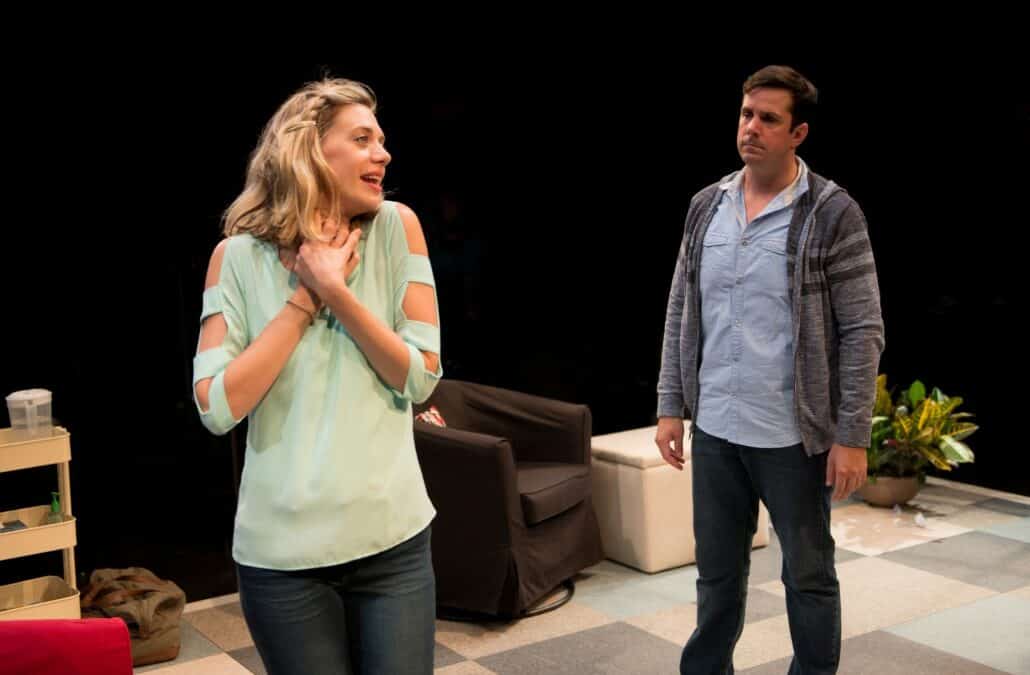
by Jack Gohn | Jul 22, 2015 | The Close Up, Theater Reviews and Commentary
Whitney and Max have been compelled by their mental disorders to turn their backs on the real world, and on the actual human connections available to them with friends and family, to obsess instead about imaginary worlds of their own making. But for each of them, their world, however artistic and creative, is also of a place of some danger. When medicine begins to cure them, they must compare the value of a sane life with love but without creativity and an insane life with creativity but without love.
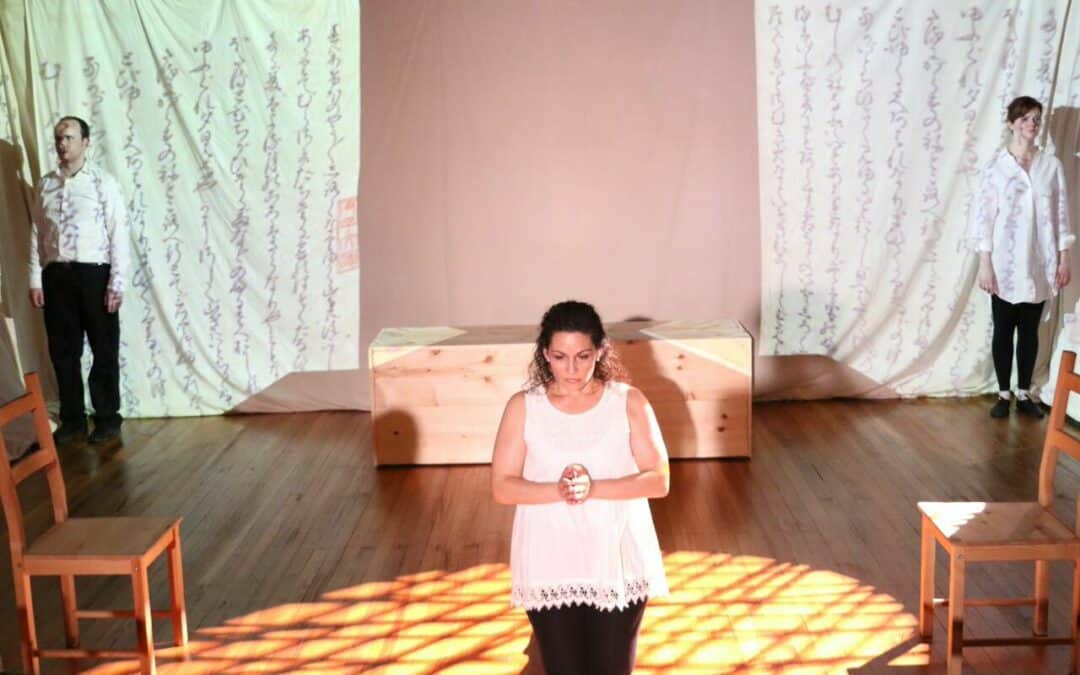
by Jack Gohn | Jul 1, 2015 | The Close Up, Theater Reviews and Commentary
The Pillow Book takes off from the current vogue of non-consecutive story-telling; everyone wants to emulate the mystification of Pulp Fiction, with its sudden reveals of not only what will happen, but of what did happen. And recently there has been an additional vogue, which I call Cubistic story-telling, in which the characters and their lives turn out multiple ways, without an authoritative single story line. The approaches can also be combined. Such works always make the viewer struggle to follow the conflicting and shuffled storylines, but seldom leave the viewer in the dust. The dust, however, is where Anna Moench’s The Pillow Book will leave you. The more is the pity. Anna Moench writes beautifully, and the acting and directing in this collaboration of two interesting fringe companies is uniformly good. But the conflicting storylines shred each other.






 I lived in London and Vienna before coming to the United States, and grew up mainly in Ann Arbor. I was writing plays and stories as early as grade school. My undergraduate years at the University of Pennsylvania, where I first reviewed theater, for the college paper, were succeeded by graduate study at the Johns Hopkins University, where I earned a doctorate in English Literature.
I lived in London and Vienna before coming to the United States, and grew up mainly in Ann Arbor. I was writing plays and stories as early as grade school. My undergraduate years at the University of Pennsylvania, where I first reviewed theater, for the college paper, were succeeded by graduate study at the Johns Hopkins University, where I earned a doctorate in English Literature.